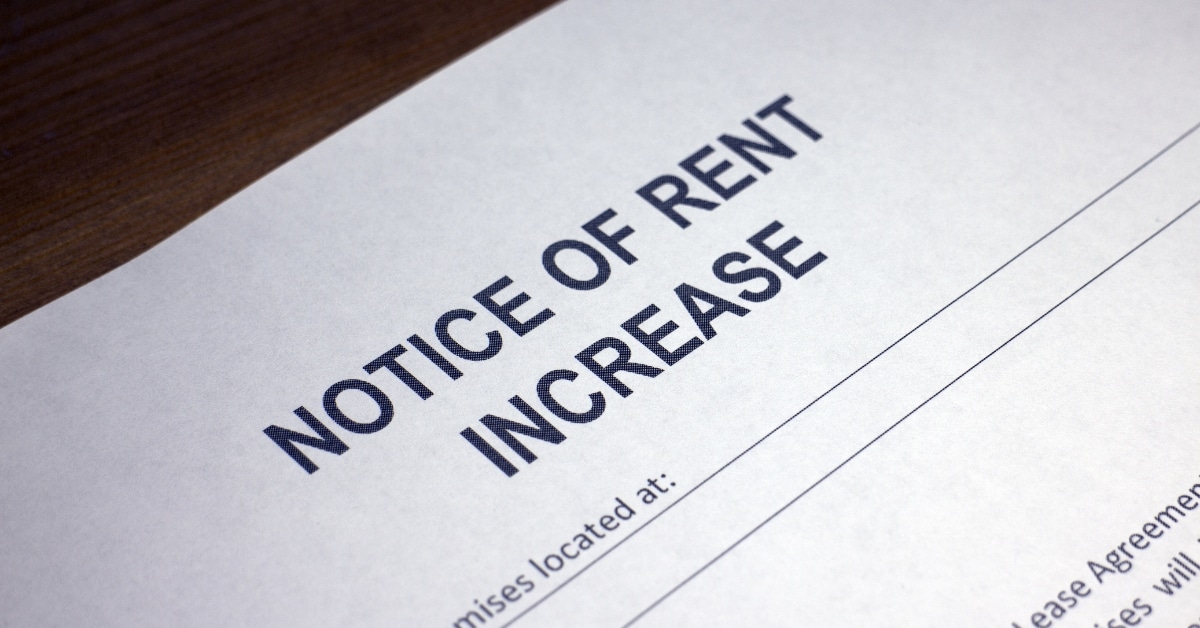
Whether you are a landlord or a tenant, you may be required to write a 30-day notice to vacate. All notices to vacate need to include specific information, including the desired move-out date, your name and address, a way for the recipient to contact you, and the reason you are moving or asking a tenant to leave.
Read this guide to learn how to write the perfect 30-day notice to vacate. It also includes examples you can use as a template for your letter.
If you are a tenant, you are responsible for giving your landlord notice before you move. If you do not give notice 30 days before your lease ends, your landlord can charge you for another month.
In some states, landlords must give tenants a 30-day letter of notice to vacate if they plan to increase the rent or ask a tenant with a month-to-month lease to move. If you are a landlord in a jurisdiction that requires 30 days and do not provide the allotted time, you will have to start the eviction process again before a judge gives you a right to remove a nonpaying tenant.
Regardless of whether you are a landlord or tenant, you need to include the following:
As a tenant, you need to give your landlord a 30-day notice to vacate to avoid paying an additional month of rent if your lease is ending or if you are on a month-to-month term. It is best to give this notice when you pay your last month’s rent.

Most leases switch to month-to-month subject to market rent when your lease term ends. So, if your monthly rental rate is $900 per month and the market rent has gone up to $1,300 per month, you have to pay for an additional month at the higher rate if you do not provide a notice to your landlord at least 30 days before your move out date.
You can follow a template to write a notice to vacate in 30 days.
(Your Name) (Today’s Date)
(Your Address)
(Your Phone Number)
(Your Email Address)
Dear (Landlord's Name),
I, (your name), am a tenant at (subject property address). I will be moving on (the date you will move). I am moving because (reason for moving). If you have any questions, you can reach me by email at (your email) or by phone at (your phone number).
Sincerely,
(Your Name)
(Your Signature)
As a tenant, if your lease is ending or your lease is on a month-to-month basis, you can indicate that. You do not have to detail your reason for moving unless you wish to terminate your lease early. Generally, tenants are required to complete their lease.
However, if you are moving before the end of your lease because your landlord has adhered to the rental agreement or you are moving due to health or safety concerns, you should provide details to the landlord. If your landlord takes you to court, you will need proof of your reason for terminating your lease before the end date.
Not stating the exact reason you are moving before your lease term can leave you responsible for rent and additional expenses until the end of your contract. If you are moving before the end of your lease due to a reason that is not your landlord's fault, you may need to pay a reletting fee or other charges related to early termination.
In some states, landlords must send a 30-day notice to vacate when they want a tenant or even squatter to move because they have violated their lease or failed to pay rent on time. If you have a month-to-month lease tenant and do not wish to renew their lease, you must provide 30 days' notice in most states. If you file for eviction before you send a notice to vacate, you may have to renotify your tenant and start the eviction process over.

The length of time that you have to give a tenant when requesting they move depends on your jurisdiction and the reason you are asking them to leave. In most states, if the tenant is month-to-month, you must give them 30 days before requesting that they move or increase the rent.
If the tenant fails to pay their rent or you evict for a lease violation, the time frame is much shorter in most cases. Many states only require a 3-day notice to vacate. However, some states require longer periods. In some jurisdictions, you need to provide a longer period depending on the tenant's length in the unit.
For example, Wisconsin requires landlords to give a 30-day notice to tenants with a lease term of greater than one year. In California and a few other states, you have to provide a 30-day notice if the tenant has lived there for more than a year, is elderly, disabled, or on government housing. So, it is important to check the landlord-tenant laws in the jurisdiction of the property.

There are also federal laws you need to abide by when serving notices. For example, the federal government passed a law during the COVID-19 pandemic requiring all landlords with tenants protected under the CARESAct to provide a 30-day CARESAct notice before filing an eviction. who received forbearance to give the tenants 30 days' notice after the forbearance period ended if they plan to evict them, regardless of the reason.

You can use the template below if you need to provide a 30-day notice to a month-to-month tenant.
(Your Name) (Today’s Date)
(Your Business Address)
(Your Contact Number)
Your Email Address)
Dear (Name of Tenant),
I, (your name), am writing to you regarding your lease at (property address). You are currently on a month-to-month contract, and the market rent is increasing. As of (date of increase), you will be subject to the new market rent price of (increased rental amount).
If you plan to move before the rental increase, you need to provide at least (number of days notice required) days notice. If you do not submit a notice to vacate within (number of days) days, you will be subject to paying an additional month's rent at the new rental rate.
If you have any questions regarding the terms of your month-to-month lease, don't hesitate to contact me by phone at (your phone number) or email at (your email address).
Sincerely,
(Your Name)
(Your Signature)
There are a few reasons that a landlord may terminate a lease early, including lease violations, non-payment of rent, tenants engaging in dangerous or criminal activity that puts other residents in danger, etc. However, there are also laws that protect tenants. If you have a lease agreement, you must abide by the contract. When you purchase a house with a tenant living in the home, you have to honor their lease.
It is illegal to harass tenants or scare them into moving out before the end of their lease term, regardless of the reason you want them to vacate. You cannot start the eviction process if you do not provide the proper notice.
Therefore, you must document all communication, written and otherwise, when dealing with a renter. It is also essential that you adhere to the local laws in the jurisdiction of the property.
As a tenant, when writing a notice to vacate in 30 days, you must provide basic details like the date of the letter, your name, contact information, subject property, move-out date, and the reason you are moving if you wish to move before the end of your lease.
Whether you are on a month-to-month or a long-term lease, you need to provide the number of days notice required by your lease contract and local laws to avoid additional rent charges. Many leases require you to give 60 days' notice before you move out. So, that is something you need to be mindful of when you near the end of your lease.
As a landlord, sending a notice to vacate to tenants renting on a month-to-month basis or those who violate their lease protects your right to sue the tenant for additional rent, damages, or possession of the property.
Without the proper notice, an eviction judge will not hear your case. Furthermore, you must start the court process after serving the vacate notice. So, it is critical that you know the local laws.
To learn about other real estate topics, like selecting the right floors for your rental property, look at the other guides on this site.
We encourage you to share this article on Twitter and Facebook. Just click those two links - you'll see why.
It's important to share the news to spread the truth. Most people won't.